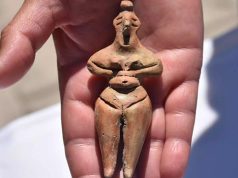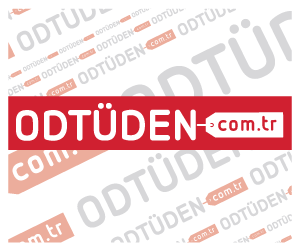
At METU, projects are being produced to enable individuals with disabilities to adapt to daily life and to make their lives easier. Here are some of them:
Wheelchair working with eye movements
Kürşat Çağıltay, professor of Computer and Instructional Technology, and his doctoral student research assistant, Mehmet Dönmez developed wheelchair technology that can be used with eye movements.Technology which was developed entirely at METU consists of a wheelchair with an integrated motor and a computer-based system analysing eye movements. The system which provides the movement of the wheelchair by focusing on the icon on the screen with eyes without the need for physical contact, also allows the users to perform some actions with eye movements like writing texts on the computer and watching videos. Thanks to the technology that uses completely local software, adaptations and designs can be made for the different needs of disabled people.
New generation Hearing Aid
Haluk Külah, professor of Electrical and Electronics Engineering, and his team are working on a project, “Cochlear Implant“(hearing aid) which produces its own energy. In the project based on a system within the ear which provides the operation of the hearing aid by converting the incoming acoustic signal into electrical energy, “the person with hearing problems will put on the earphones at night, will receive a sound from the tone s/he does not hear through a mobile phone application, the battery will be charged with that sound and s/he will continue to use the device in the morning”. With the project that has completely changed the working principle of the currently used hearing aid systems, a significant breakthrough will have been achieved in the product technology for the people having impaired hearing.
“Empathy Street” project
Refik Toksöz, lecturer at the Department of Industrial Design, developed a project to raise awareness for the difficulties faced by people with disabilities in daily life.The project which offers the opportunity not only to experience the use of wheelchairs through virtual reality glasses, but also to empathize with disabled people, helps one to picture the daily-life problems of the disabled people by acting like them.The project which aims to explainwhat moving with the wheelchair in the city life is like to the individuals who are not disabled, also aims to tell all the people about what causes an obstacle for disabled individuals are the cities which aren’t designed appropriately. Thus, it aims to change the urban design.
Children-oriented exercise toy “Puffer-io”
Puffer-io, which was designed thanks to the collaborative work of the students from different departments within the Design Factory [Anıl Kürkçü (Mechanical Eng.), Birnur Şahin (Ind. Des.), Esra Cantürk (Preschool Teaching), İdil Kara (Metallurgical and Materials Eng.), İpek Koçak (Metallurgical and Materials Eng.), Meltem Atay (Neuroscience and Neurotechnology), Özgür Baskın (Computer Eng.)] , is an easily applicable and entertaining rehabilitation solution for children with special needs. Puffer-io, which makes the measurement and evaluation of the movements of the children who suffer from cerebral palsy (CP) that causes different levels of damage, who have muscular tonus, posture and movement disorder and which measures and evaluates the movements of the children who suffer from juvenile idiopathic arthritis (JIA), permanent rheumatoid arthritis occurring in childhood, is also an entertaining toy. Puffer-io, a product aiming to provide emotional connection with the child by giving both audible (with sound) and visual (illuminated) feedbackin an interactive way, also has the characteristic of reminding the child of the exercise hours.
Barrier-free access system
The project was developed by Ataman Özdemir, who is an instructor at the Department of Industrial Design. The project, which he designed by being inspired from the ramps placed next to the stairs, whose applications can also be seen in METU campus, and which is applied on the stairs with the height of 100-150 cm, has the elevator structure that decreases its slope gradually. Thanks to the parallel lifting-lowering method of the system, which is completely local production and which equalizes and fixes the height of the place that will be ascended on the ground, the user can reach the height s/he intends to ascend without any inconvenience.







